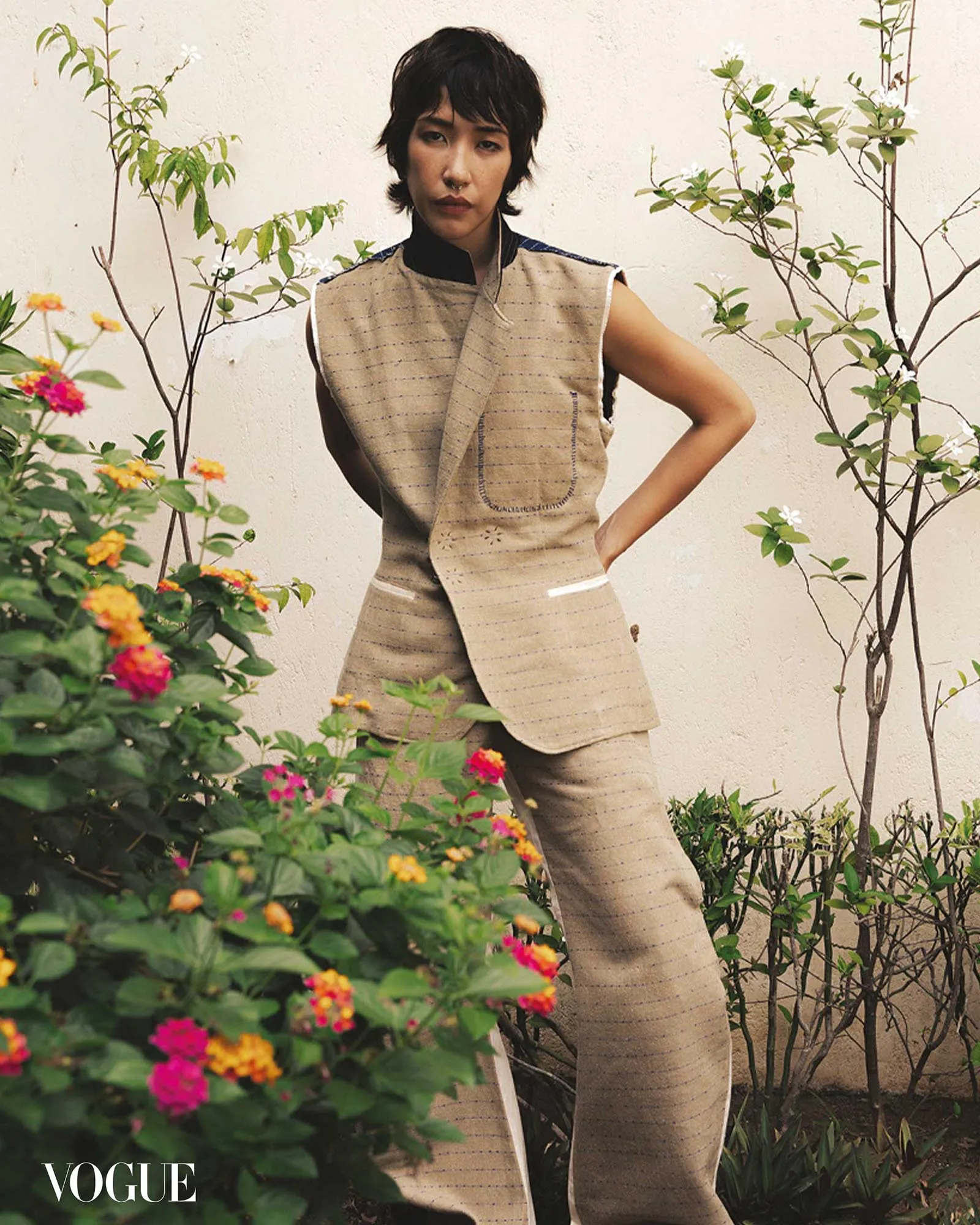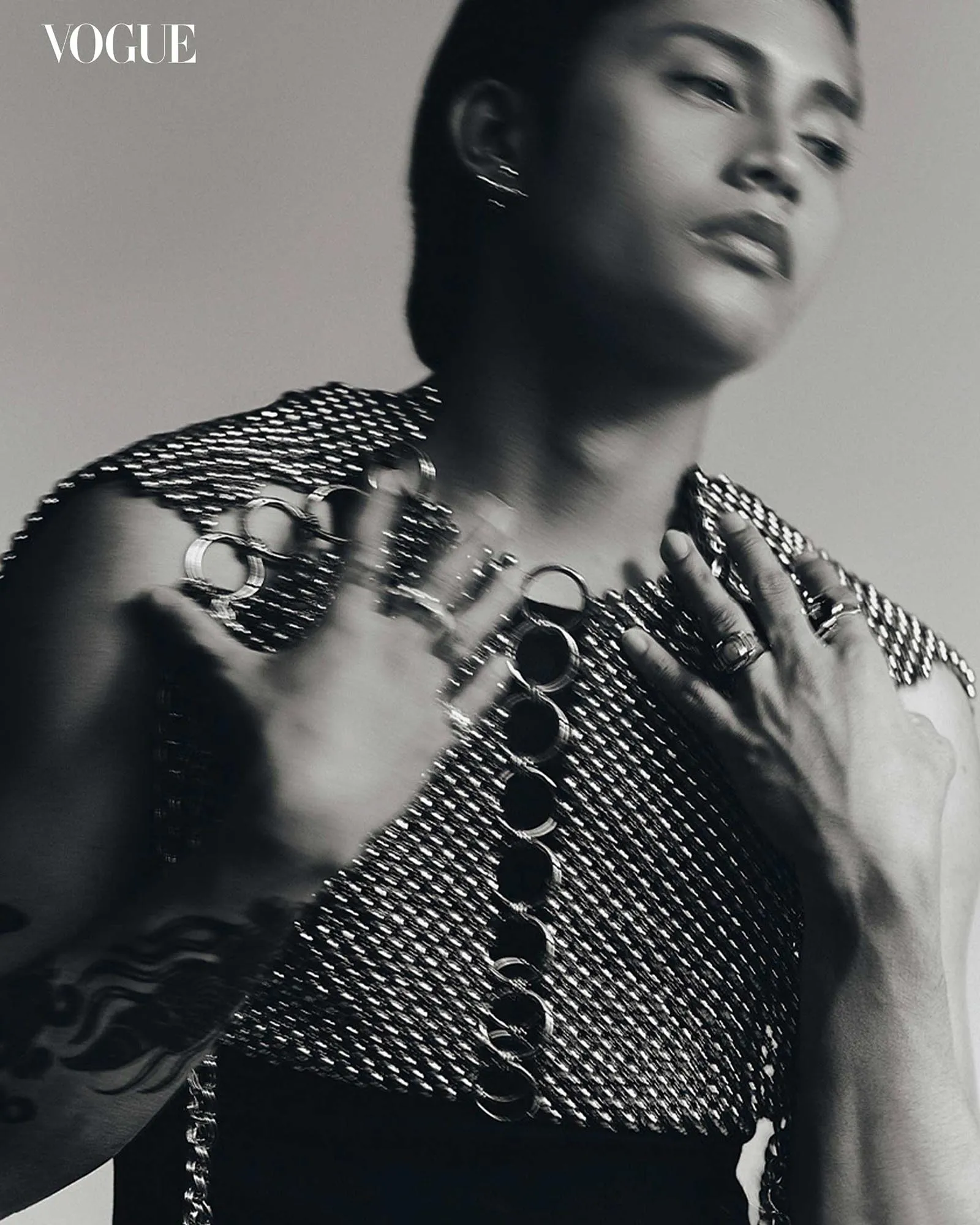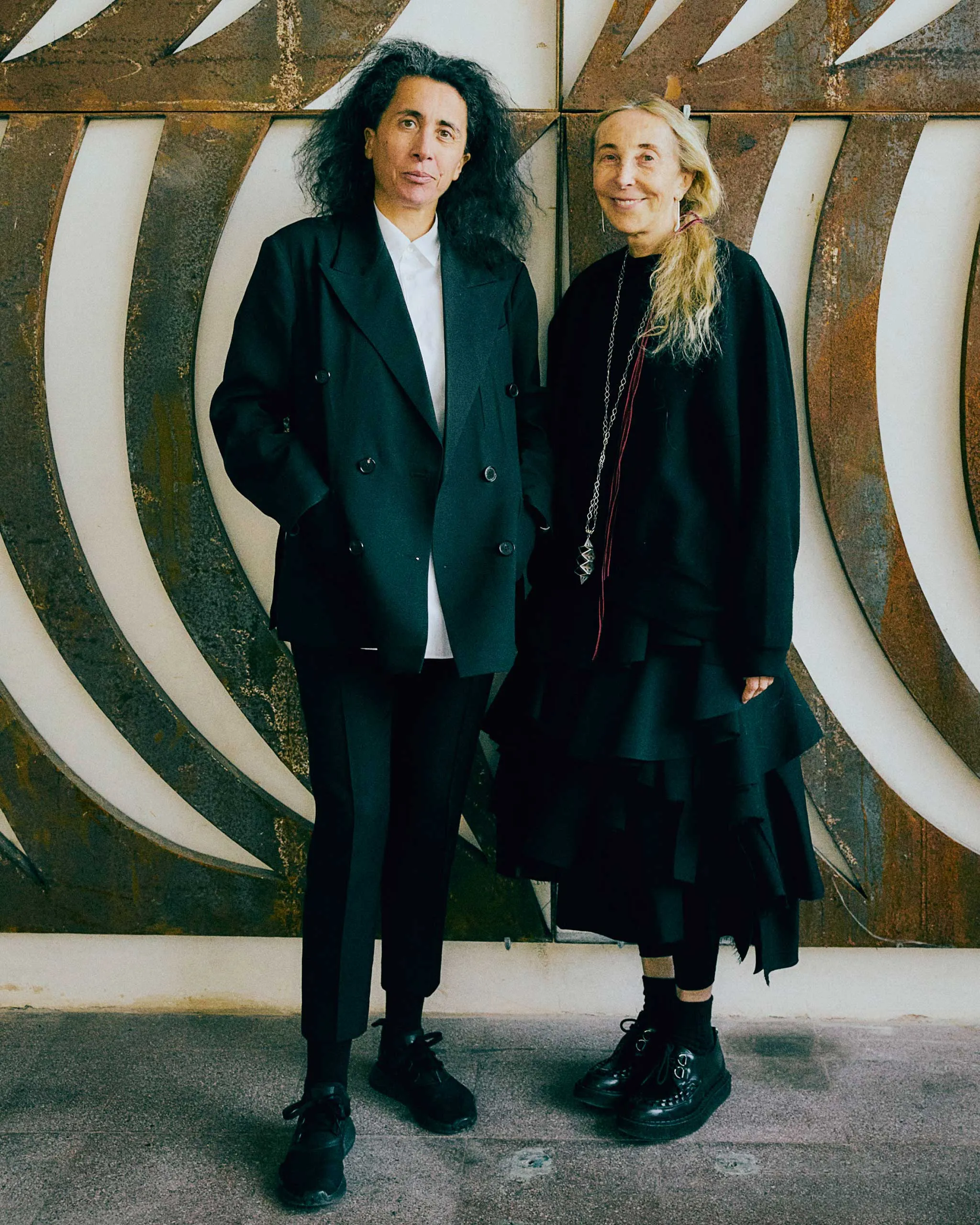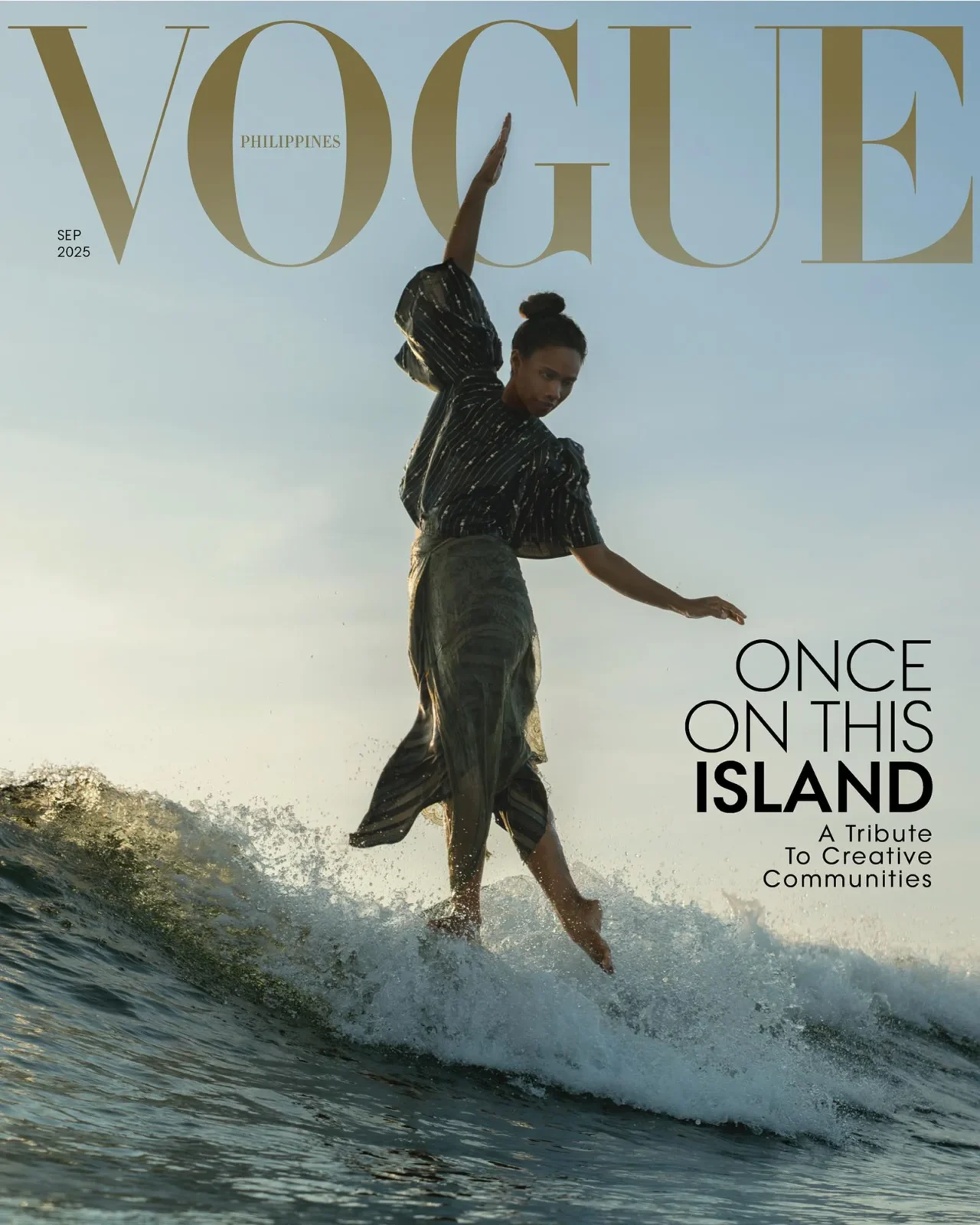Sara Sozzani Maino talks to Vogue about the monumental FASHIONPhilippines Milan Mentorship Program launching this September.
In 2016, the night before she made fashion week rounds, Sara Sozzani Maino revealed that most of her time during show season was actually spent off the grid. You would find her “in dingy studios, classrooms, even people’s living rooms,” she told the New York Times. “Many of the designers I am looking for don’t have the money to come to me. So instead, I go to them. I like it that way.”
Championing independent designers continues to be the locus of Sozzani Maino’s work, just as it has always been. “My daughter has been supporting young designers for all her career, you know,” says her mother Carla Sozzani, in an interview with the Nick Knight-directed fashion website SHOWstudio. “And Sara is very, very involved in responsibility; she doesn’t want to call it sustainability.”
When Vogue Philippines chatted with Sara in April of this year, she confirmed her mother’s claim and expounded further. “I don’t use the word sustainable, because for me, it’s responsibility in all its forms: productive, socially, ethical, rights and all of that,” she enumerates. “So this is something that I’m always in search of, in any kind of project or brand that I look at, whether they come from the Philippines, Italy, Europe, or internationally.”
She has a way of seeing with her eyes wide open, following her curiosities to where they might lead. This pursuit remains active as she carries out the role of creative director at Fondazione Sozzani, which her mother established in 2016. That same year, the foundation “[took] over patronage of” the Carla Sozzani Gallery established in 1990, and today, it continues their legacy of “promoting and spreading modern and contemporary cultural and artistic activity, in all its expressive forms,” their website reads.

The foundation has always been focused on fashion, photography, design, art, and culture, and since joining the team nearly five years ago, Sara has put forth pillars that are personally important to her. Education, responsibility, and the new generation, these three have stood as building blocks for the creative director, who explains, “So the fact is that the foundation, apart from also doing cultural events that are linked to all these pillars, is about creating what I strongly believe is education. Because education, it’s not just in school. Education happens every day, and not everyone has access to education.”
This year, Sozzani Maino brings this mission to the Philippines. In a landmark initiative, Fondazione Sozzani has partnered with the Center for International Trade Expositions and Missions (CITEM), Philippine Textile Research Institute (PTRI), and Philippine Fashion Coalition (PFC), together with Teresa “Tetta” Ortiz-Matera of LIT Fashion Consultancy, to bring the the FASHIONPhilippines Milan Mentorship Program 2025 to life.
The program is the first of its kind, and is directed toward supporting the next generation of Filipino designers through in-depth sessions with esteemed global mentors. Lending their expertise alongside Sozzani Maino are Riccardo Grassi, RG Showroom founder; Niccolo Pasqualetti, founder of his eponymous brand; Riccardo Terzo, international fashion stylist and consultant; Rylé Tuvierra, digital content creator; Giulia Demitri, women’s lifestyle and beauty buyer for Gaudenzi Boutique; Helena Boissonnas, retail expert and buying consultant with Le Bon Marchè; and Silvia Bertocchi, who is responsible for the cultural programs of Fondazione Sozzani. Taking a hands-on approach, the board will oversee portfolio reviews and collection previews, and will be spending one-on-one time with each designer or brand.
Afterwards, the program will culminate in the rare opportunity to be part of a three-day exhibition held during Milan Fashion Week this September. The presentation will feature curated works by 12 chosen Filipino designers and fashion brands, and will be housed in the prestigious Fondazione Sozzani, whose walls have seen the exhibits of fashion greats like Yayoi Kusama and Maison Martin Margiela, and legendary photographers such as Annie Leibovitz, Bruce Weber, and Helmut Newton.
After months of portfolio reviews, the panelists proudly present the program’s inaugural batch of mentees, including Bagasáo by Joseph Bagasáo, Jerome Lorico, Vania Romoff, and other designers.
Speaking of Philippine fashion, Sara is quick to admit that while she’s never visited the country, she’s observed a distinct optimism about the culture. “I’ve met a few Filipino designers in my career, and what I always saw was a lot of creativity, color, craft, and something that wasn’t just to satisfy the market, but to bring out the heritage. I always perceive that it’s [about] positiveness, happiness, because it’s always very colorful and rich; rich, meaning embroideries.”

When asked about particular designers that have drawn her in, she says, “Ken Samudio, I supported him in 2013 or 2014. Ched Studio, I helped him for Pitti Uomo. And Jaggy Glarino. These are the three that come to mind.”
While it’s evident that the project will invite visibility to Filipino heritage, craftsmanship, and designers, Sozzani Maino stresses that the project’s mission is ultimately “not just to be seen.” It’s also about giving designers the building blocks to cement the initial structures of a successful and stable brand. “I see the gap between schools and the industry is huge,” she continues, “because there’s so many designers that come out every year, but they don’t have the slightest idea where to begin. So you have to make them understand the process, and grab them by the hand and help them out.”
One of her hopes is to curtail the tendency of some designers to lose their DNA, a result of listening to too many people. “So I always say: listen, but in the end, it’s your heart and your belief in your vision. You never have to compromise your values and what you really think. Because if you’re in front of us showing a collection, it’s because you really believe in that. You have to encourage, encourage, and encourage them, and not put them down. That’s the point,” she emphasizes.
All this, of course, was years in the making. Sozzani Maino and Ortiz-Matera had met in October 2017 during Tokyo Fashion Week. The latter says of the former, “Sara is incredible at what she’s doing. [With] the impact that she has on the fashion industry, I felt like, as a Filipino, I cannot let go of the chance to work with her, and have her work impact our local fashion industry.”
Tetta admits that they had a series of false starts, and almost pushed for the initiative to happen before Covid hit. “It got cancelled,” she recalls with a smile. “And then there was another one where we almost signed the contract, and then it didn’t happen. And throughout this time, neither one of us gave up.” She chalks it up to perfect timing, and finding the right people to work with. “So I guess this is what happened, you know, this time around,” Ortiza-Matera says with a smile of relief. “Here we are.”
As we close our conversation, laughter and sentiments are exchanged about how this is what materializes when passionate people come together: magic happens.
Then, one of the meeting moderators asks, “What’s that Italian term again?”
“Tenacia,” Maino replies with a smile, her thick accent cutting through. “Tenacity.”
See more of this story in the Anniversary Issue of Vogue Philippines, available at the link below.
By TICIA ALMAZAN. Portrait by Stefan Giftthaler. Photographs by Rosi Di Stefano.

